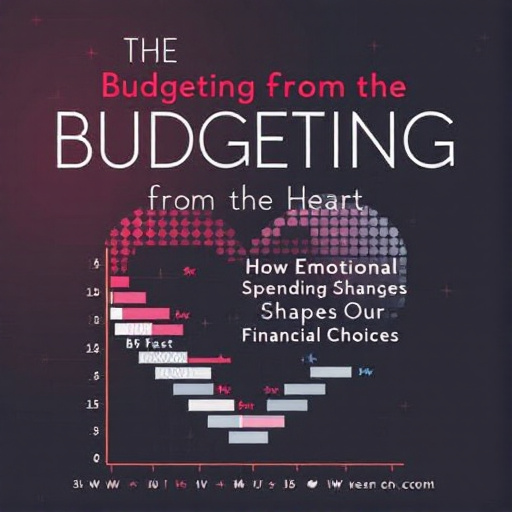Featured Articles
- 8 Essential Cognitive Biases That Sabotage Your Budget and How to Outsmart Them for Financial Success
- "Budgeting Beyond Basics: How Emotions Influence Your Spending Habits"
- Budgeting from the Heart: How Emotional Spending Shapes Our Financial Choices
- "Cryptocurrency and Budgeting: How Digital Coins are Shaking Up Monthly Money Management"
- "Cryptocurrency and Budgeting: How Digital Currency Could Revolutionize Your Spending Habits"
The Hidden Costs of Happiness: How Your Joy Factor Affects Your Budgeting Choices
The Hidden Costs of Happiness: How Your Joy Factor Affects Your Budgeting Choices
Understanding the hidden costs of happiness reveals how our emotional well-being profoundly influences our budgeting choices. In this exploration, we’ll delve into the interplay between joy and financial decisions, dissecting how happiness can alter your spending habits, savings, and overall financial health.
The Unseen Link Between Happiness and Spending
Imagine you’re standing in a vibrant store filled with everything from gadgets to gourmet treats. The allure of acquiring something new often stirs joy, but have you ever considered the long-term financial implications of that blissful feeling? According to a study published in the journal Emotion, spending money on experiences, such as travel or concerts, tends to bring more sustained happiness than material purchases. However, those experiences often come with hidden costs that may affect your budgeting choices.
The Downside of Instant Gratification
At 25, I’ve come to realize that happiness often masquerades as instant gratification. We live in a world of flashing ads and endless online sales that can tempt even the most disciplined savers. A recent survey by the American Psychological Association found that approximately 70% of Americans admit to making impulsive purchases when they are feeling happy. While it’s great to indulge every now and then, these small splurges can add up to significant expenses over time.
Case Study: The Joy vs. Budget Dilemma
Meet Sarah, a 32-year-old marketing executive who found herself spending more on Sunday brunches than she realized. Each week, she and her friends would gather to enjoy delicious meals and share laughs, which undoubtedly boosted her happiness. However, when she finally reviewed her monthly budget, Sarah discovered she had spent nearly $400 on brunches alone. The joy of dining out was costing her not just money but also her long-term financial goals like saving for a house.
Transforming Happiness into Wise Investments
So how do we balance our joy factor with rational budgeting? Experts suggest viewing happiness as an investment. Consider spending a portion of your budget on activities that enrich your life without leading to financial regret. According to a report by the National Endowment for Financial Education, setting aside funds for experiences rather than material possessions can yield a more gradual and fulfilling happiness without the accompanying guilt of a deficit.
Budgeting with Purpose
Cue the “lightbulb moment.” Budgeting doesn’t have to be a grueling chore. Instead, think of it as a roadmap to a happier life. Creating a budget that aligns with your emotional well-being can elevate not just your happiness but also your overall financial health. For instance, allocate funds specifically for personal development and hobbies, allowing you to explore what truly brings you joy while maintaining fiscal responsibility.
Psychological Effects of Money
Interestingly, research from the University of California, Berkeley, shows that psychology plays a vital role in how money affects happiness. Participants in one study indicated that spending money on others, rather than oneself, had a more substantial impact on happiness. By prioritizing philanthropic efforts or simply treating a friend, you can sustain joy while navigating the complex world of budgeting. The impact of generosity demonstrates that aligning financial choices with our emotional needs can create a symbiotic relationship that ultimately enhances happiness.
The Ripple Effect of Happiness on Financial Health
Beyond immediate spending patterns, your joy factor has a rippling effect on your overall financial health. The World Happiness Report highlights a striking correlation: happier people tend to take measured financial risks, such as investing in themselves through education or starting a business. While it may initially seem counterintuitive, allocating funds toward personal growth can lead to greater income potential in the long term, paving the way for a happier, more contented life.
The Joy of Saving
But let’s talk about saving—often the forgotten sibling in the happiness-family spectrum. Saving money can bring its own form of joy, as research from the University of Cambridge suggests that those who consistently save tend to feel a sense of security and empowerment. One clever strategy is to gamify your savings habits: set small milestones and reward yourself when you hit them. A casual dinner out after reaching a savings goal can pave the way for reinforcing that “money brings joy” mentality, just as long as it’s budgeted.
Finding Your Balance
To navigate this complex relationship between happiness and money, it can be helpful to create a “joy budget.” This is not merely a line item for entertainment; it involves allocating funds firmly tied to what brings you authentic joy each month. For instance, if hiking in nature divine lifts your spirits, but movie nights out with friends cost more, find a balance. Swap one movie for a hike and treat it as an enriching experience. The key is understanding that all aspects contribute to your overall happiness.
The Role of Age and Experience
Interestingly, age plays a pivotal role in how individuals perceive the cost of happiness. Research shows that individuals in their late twenties to early thirties prioritize experiences differently than those in their forties or fifties. Younger adults often chase ephemeral joy through immediate gratification, while older adults may lean towards investing in long-term happiness that comes from relationships or fulfilling passions—informed by their past experiences.
Equals and Alternatives: Budgeting for Joy
Sometimes, it’s tempting to judge how other people manage their finances based on perceived happiness. Social media is brimming with curated lives, often showing friends' blissful escapades, leading to envy and impulsive spending. The key? Remember that what you see is often a highlight reel. Opt for alternative and budget-friendly experiences that induce joy without the financial strain—for instance, hosting a game night at home instead of a pricey dinner out with friends. Your bank account will thank you, and so will your sense of fulfillment.
The Pain Points of Happiness
It’s important to note that not all happiness can or should be purchased. The pursuit of joy can sometimes cause unexpected financial pain points, particularly when people confuse a fleeting emotion with a permanent purchase. As the saying goes, “money can't buy happiness,” but it can certainly fund experiences that provoke joy. It’s critical to sift through what brings true fulfillment compared to what just temporarily elevates your spirits—a meticulous analysis that might require some soul-searching.
Step-by-Step Happiness Budgeting
Begin by setting goals for your joy—and your finances. Here’s a step-by-step guide to managing your happiness budget: 1. List what truly brings you joy (e.g., experiences, hobbies, generosity). 2. Assign budgetary limits to each category, understanding the trade-offs. 3. Review your spending habits regularly to keep your budget aligned with your evolving happiness needs. 4. Reassess not only your financial health but your emotional well-being. What changes over time? This cycle of reflection will allow you to adapt and thrive.
Conclusion
In understanding the hidden costs of happiness and how our joy factor influences budgeting choices, we empower ourselves to create financial strategies that enhance our overall well-being. By learning to balance joy with practicality, we can navigate our personal finances with confidence. Ultimately, blending spending habits with experiences that enrich our lives will lead to a more fulfilling financial journey—one that celebrates and cultivates happiness along the way.



